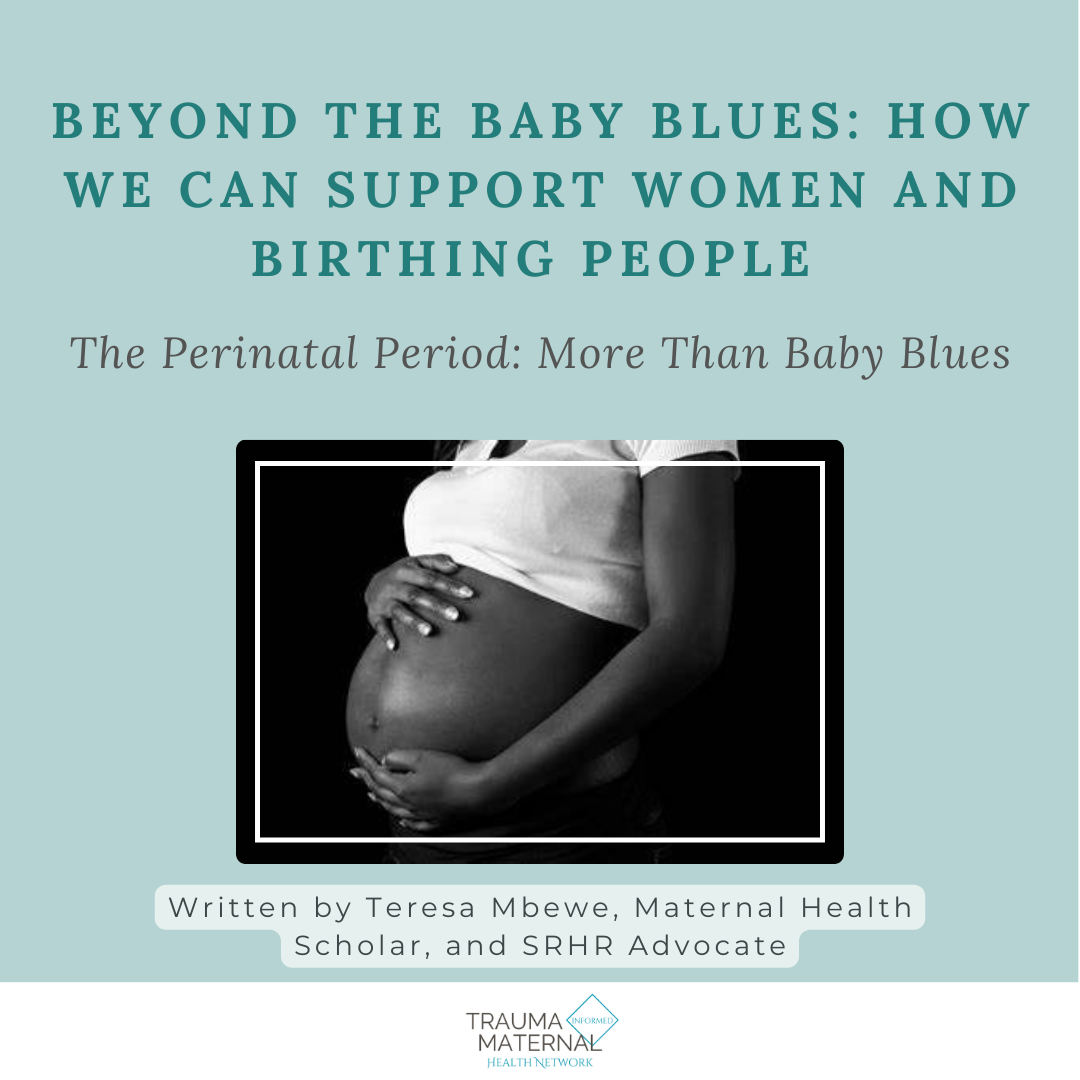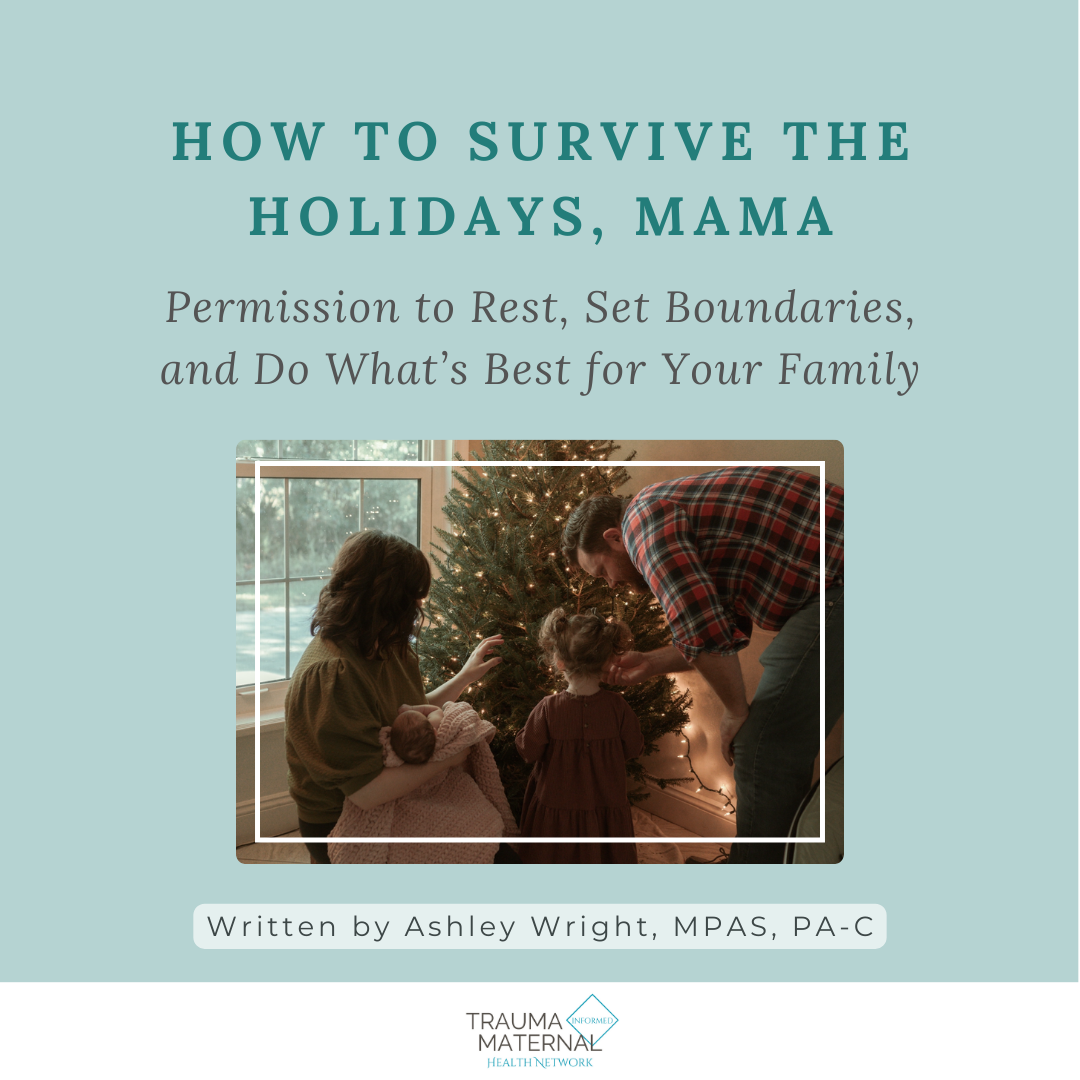Postpartum Care Is In Crisis. I Lived It. Maternal Mental Health Care Isn’t Optional. It’s a Public Health Emergency.
Written by Guest Blogger Maddie Moss, Founder of Maternal Sunshine
My Story.
A week after giving birth, I made one of the hardest and bravest decisions of my life. I checked myself into an inpatient behavioral health unit.
I kept thinking, “How did I end up here? Postpartum depression doesn’t happen to people like me.”
For context, I loved being pregnant and was surrounded by a strong support system throughout. My husband and I read What to Expect When You’re Expecting and tracked our son’s growth in the Ovia app, marveling as he grew from the size of a tiny blueberry to a full-grown watermelon. We took a virtual tour of the labor and delivery unit (thanks, COVID!), assembled the nursery furniture with care, and gently washed his tiny onesies.
We couldn’t wait for the arrival of our sweet baby boy.
Nothing could have prepared us for what came next.
Five days postpartum, a sewage leak forced us to evacuate our home. Still bleeding, sore, and sleep deprived, we moved into a hotel with our newborn son.
I tried to stay positive, but inside, I began unraveling.
My husband handled all the logistics with the plumbers and contractors, did laundry in the hotel’s onsite facility, and stocked our hotel room with fresh groceries. I couldn’t have asked him for more. But while he was out getting supplies and coordinating repairs, I was alone in a hotel room with a newborn and a mind I couldn’t quiet. I couldn’t sleep, even when my son did. I was so terrified that if I shut my eyes, even for a minute, something terrible would happen to him.
My thoughts raced. How did everyone else make motherhood look so natural and easy? Why wasn’t I enjoying every moment? If I couldn’t get through maternity leave, how would I ever manage going back to work?
I started to question whether I was cut out for this at all.
I began to believe my family might be better off without me.
In distress, it was hard to think clearly.
I called my OB/GYN, who prescribed a low-dose SSRI and recommended that I find a therapist. The thought of scrolling through my insurance provider’s website was daunting, and I needed help fast.
I didn’t feel safe in my own body.
Unsure where to go, I ended up in the emergency room at the hospital where I had delivered. I talked to nurses, doctors, and a social worker. Together, we agreed that I needed inpatient care. But in my sleep-deprived state, it wasn’t until they were wheeling me away that I realized I would be separated from my son. While it is an amazing hospital, they don’t have a mother/baby psych unit. I had to advocate for myself to receive postpartum basics, like mesh underwear, pads, and a breast pump. Being the only postpartum patient in the unit was an extremely lonely and isolating experience.
Four days later, I was discharged. Our home was still under repair, so we stayed with family this time. I was too ashamed to admit that I was still struggling. I was afraid to tell anyone about my intrusive thoughts, because I thought I’d be separated from my family again. I tried two different therapists, but neither seemed to help.
As the weeks continued, I pretended everything was okay. I smiled, shared baby pictures, and showed up.
But I couldn’t shake this sense of hopelessness.
When my maternity leave ended, I returned to work hoping the distraction would help.
But the brain fog, insomnia, and constant fear followed me everywhere. My condition was affecting my work, so I had to make another difficult decision. I had to tell my manager the truth – that I was struggling and needed help. She responded with compassion and encouraged me to seek care.
That moment of honesty opened the door to healing.
First, I found a therapist certified in perinatal mental health (PMH-C). Unlike the other providers I had met, she listened to me without judgment and offered practical support and resources.
She told me about Postpartum Support International (PSI), a non-profit organization dedicated to helping families that experience perinatal health conditions.
She also connected me to a psychiatrist who specializes in women’s reproductive health. That’s when I finally got on the right medication and dose.
I also joined a virtual support group, Beyond the Baby Blues. There was such comfort in hearing other moms say, “me too.” For the first time, I didn’t feel so alone. Looking back, I think it made a big difference that all of my new providers were moms too. I felt seen and understood in a way I hadn’t before, especially compared to the older male psychiatrist at the hospital’s psych unit.
Gradually, the fog lifted. Motherhood was still hard, but it became more manageable. My medication began working. Sleep returned. I held my son and finally felt like I could enjoy it.
As I began to process what I went through, I became fascinated with perinatal mental health conditions. If this happened to me with every advantage on my side, what happens to families with less support or more barriers to accessing care?
Perinatal mental health conditions are the #1 complication of childbirth.
Yet, there are only five inpatient perinatal psychiatry programs in the entire United States.
Let that sink in.
Five.
With so many moms struggling, it’s clear that perinatal mental health conditions are not a personal failure. They’re a reflection of a system that has failed us. We send moms home with a newborn and a six-week checkup. But the infrastructure to support the birthing person through their healing, physically and emotionally, is lacking.
It’s not just unacceptable.
It’s dangerous.
Families deserve so much more.
As I began advocating for maternal mental health, I met other survivors from across the U.S. and Canada. Sadly, my story is not unique. Too many of us have been let down by a system that wasn’t built to support us.
Resources like The Trauma-Informed Maternal Health Directory are essential for bridging the gaps between perinatal patients and providers. Their online directory is exactly the kind of resource I wish I had known about in my darkest days.
If motherhood doesn’t feel like what you hoped for, please know that you are not broken. There’s a growing village of moms – sharing our stories, holding each other up, and fighting for a system that sees and supports us.
Please don’t give up.
You matter.
We need you here.
- - - - -
Guest Author: Maddie Moss of Maternal Sunshine
Maddie is the proud mom to a two-year-old, living in the northwest suburbs of Chicago. She works as an administrative assistant for an HR consulting firm and recently created Maternal Sunshine after overcoming her own perinatal mental health challenges. Through this work, she supports families by sharing trusted perinatal resources and offering peer-to-peer support.
Instagram: https://www.instagram.com/maternal.sunshine/
About the Trauma-Informed Maternal Health Directory
Liz Gray, LCSW and Olivia Verhulst, LMHC, PMH-C— co-founders of the Trauma-Informed Maternal Health Directory— are clinical psychotherapists with a deep passion for increasing accessibility of trauma-informed care to the maternal health population.
They created this specialized directory to connect women & birthing people to trauma-informed health & mental health providers who specialize in infertility, pregnancy, postpartum, and new parenthood.
Search the directory: https://directory.maternaltraumasupport.com/
Interested in writing a guest blog post?
If you are a trauma-informed provider who works with the perinatal population, submit a blog proposal HERE!
Please make sure the article is original content that aligns with our values of safety, inclusion, transparency, collaboration, empowerment, and support.




